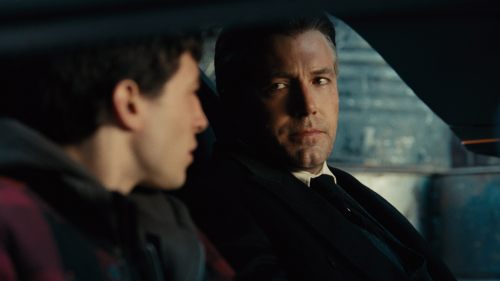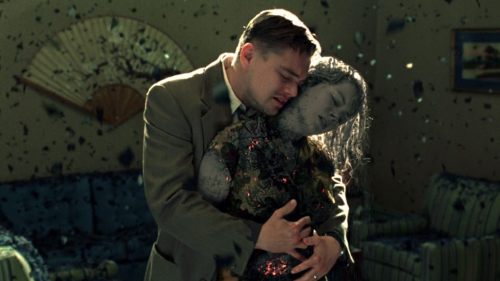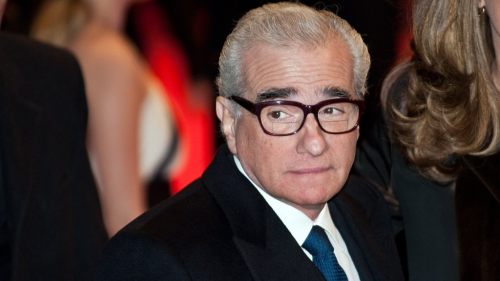Scorsese’s JOKER Project Could Set A New Path For DC
DC is no stranger to the line-wide re-launch, what with the New 52 in 2011 and last year’s Rebirth providing jumping-in points for new readers. The former began with a continuity reset in the form of Flashpoint, a time travel/alternate universe Flash comic and a title you may be familiar with if you followed the news out of Comic Con. The movies seem to be headed in a similar direction, and it may not be the worst thing.
Yesterday, Deadline brought us the Mad Lib news story that is DC’s forthcoming Joker film, an origin story written by 8 Mile scribe Scott Silver and The Hangover director Todd Phillips. The most interesting part of the news, however, was the involvement of Martin Scorsese, which - while merely preliminary - also leads one to wonder what exactly DC Films has in store for the “DCEU.” The answer may, in fact, lie within the very same news story: the creation of a new banner under which new iterations of these characters will be afforded solo projects at various budgets and with a rotating cast, detached from the shared continuity.
Regardless of Scorsese’s involvement – which would certainly be something, given the film’s description as “a gritty and grounded hard-boiled crime film set in early-’80s Gotham City that isn’t meant to feel like a DC movie as much as one of Scorsese’s films from that era, like Taxi Driver, Raging Bull or The King Of Comedy” – DC’s yet-to-be-named anthology banner and its supposed Flashpoint trajectory seem to indicate a potential move away from its current shared universe as the anchor point for its brand.
The Marvel Cinematic Universe has been both the continuity-driven gold standard and the new coveted paradigm for studio blockbusters ever since The Avengers, with everything from the Universal Monsters to Men In Black and the Jump Street movies being considered for cross-pollination. The DCEU began to model itself on Marvel’s success, as well, albeit overzealously, putting the horse before the cart and dropping us smack-dab in the middle of a universe that felt decades old with a Batman that had already cycled through a couple of Robins, one of whom might’ve been killed by The Joker. In the process of catching up to eight years of general audiences returning to familiar Marvel faces, DC merely added the texture of familiarity to Batman v Superman and Suicide Squad before calling it a day. And while those are hardly the only problems with either film, positioning themselves as both the “darker” alternative to Marvel while leaning all the way in to the Marvel formula seemed to provide a fundamental disconnect, one Wonder Woman didn’t fall victim to since it wasn’t set amidst the present continuity. The failure of their setup thus far leaves the DCEU with two options:
Ape the Marvel formula exactly, or pivot in a new direction.
That former option is still in play – what Justice League will end up looking like under Joss Whedon is anyone’s guess, and Flashpoint could be used to reboot any number of things, from character to tone, even to casting – but given that DC’s version of the shared universe hasn’t exactly been a smashing success, the latter seems just as viable. It’s also an opportunity to truly deliver in the promise of “filmmaker driven” stories, but that remains to be seen.
Not only does DC’s anthology banner allow them to try something along the lines of the other recently successful Disney formula (a new Star Wars episode every other year with a spin-off in between; the Han Solo movie, while something of a prequel, is certainly comparable to this recast Joker film), it also allows them to get around the problem of major elements that either don’t work, like Jared Leto’s Joker, or elements that may not stick around for long enough to be anchors, like Ben Affleck’s Batman. Marvel’s rotating Avengers roster allows for a case-by-case incorporation of successful elements, with no one character being deemed vital until and unless they work. They began their whole endeavor with B-list characters, so any Avenger could hypothetically be phased out if they don’t connect with audiences without damaging the overall fabric of the MCU (say Ant-Man had bombed, no one would miss him in Avengers: Infinity War), though DC doesn’t have that luxury - given that it’s not only starting with an all-out shared universe before every character has been established - but it’s also working with iconography as popular and widely recognizable as Batman and The Joker. A linear shared continuity doesn’t exactly provide a safety net if the one guy assembling the Justice League wants to jump ship and there aren’t many other characters to pick up the slack.
An anthology film however, where the iconography itself is the draw regardless of its place in a larger universe, circumvents that issue. Smaller budgets, different settings and new takes on the characters are certainly a possibility (the DC pantheon absolutely warrants re-interpretation, with every major character having changed radically over the years), but more so than just the hypothetical permutations from a story standpoint, it allows DC to rebuild its brand by bringing some of the world’s most popular heroes and villains to the screen in new and interesting ways. Some of these folks already exist on television (The Flash is about to enter its fourth season, while Supergirl recently featured a new version of Superman), so creating a singular live-action canon hasn’t exactly been the top priority to begin with.
It’ll still certainly be testing the waters some six or seven years in to this venture by the time the Joker film happens (maybe they’ve figured things out behind the scenes, maybe they haven’t), but what’s clear is the straightforward superhero shared universe isn’t working out for them. Whether Justice League follows suit remains to be seen, but rather than laying track as the train speeds forward by re-shuffling its release calendar depending on what elements of the DCEU do or don’t work, a parallel series of anthology installments at least gives them some kind of stability without the need for radical change in vision every twelve months.
Whether or not The Joker needs an origin story is its own conversation, but given the right approach, audiences will certainly show up. At worst, it’s another failed superhero experiment. At best, it leads to more stand-alone superhero stories that don’t feel mass-produced. Don’t be surprised if we get two or three new Batman actors over the next decade, as well.



